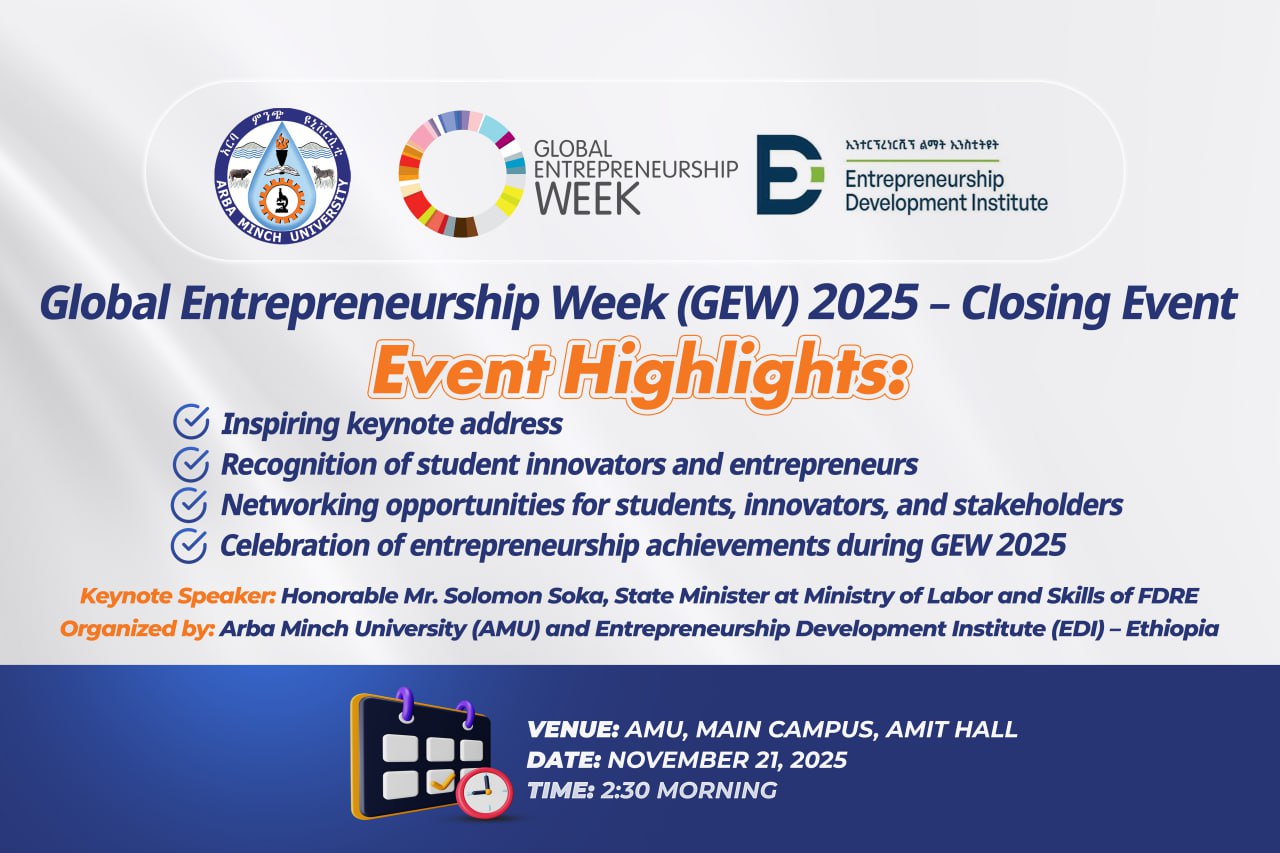Institute of Technology’s Water Resource Research Centre has hosted 16th national symposium on ‘Sustainable Water Resource Development’ from 1-2 July, 2016, at New Hall, Main Campus.
Of 22 papers presented by different institutes & universities, AMU had seven. And the papers were focused on issues of emerging challenges, irrigation and drainage, water supply and sanitations, hydrology and integrated water resource management.
AMU President, Dr Damtew Darza, addressing audience said, ‘‘As population grows, a greater quantity and diversity of water needs pose challenges to water resource managers. Especially present scenario has complex issues which have no clearly defined boundaries, multiple stakeholders and singular solution; it needs holistic and integrated approach.’’
He further said, AMU as ever being committed to nation’s development, will continue to play constructive role in building capacity and research in developing skills, generating knowledge and transferring technologies for sustainable development of water resources.
Minister for Water, Irrigation and Electricity, Mr James Dengechol, in his opening speech said, ‘‘To handle complex issue of water resource management and utilization, policy and decision-makers rely on scientific community, who plays pivotal role in providing scientific evidence to assist policy formulation process. So, we must understand we both are responsible to ensure needs of our people for practical solution for the problems confronting nation.’’
He has further informed that all river basins have been directed to study buffer zones and submit reports within three to six months, so that government would take corrective measures.
Rift Valley Lakes Basin Authority’s Director General, Dr Kebede Kanchula, said, he is on a mission to tell people that water is socio-economic resource and its indiscriminate usage has almost exhausted rivers and lakes.
Citing case of Hawassa lake, he revealed, ‘‘In 1972, the lake was 12 square kilometers big, which further reduced to 6.5 in 1995; 3.5 in 2000, 1.5 in 2007 and at present it has shrunken to 0.1 square kilometers. This dangerously precipitating situation will be arrested as government is about to bring in an integrated policy to govern the usage of this precious liquid across the nation.’’
Director for Research and Development, Ministry of Water, Irrigation and Electricity, Mr Abiti Getaneh, said his office is ready to collaborate with universities on ground water partnership.
AMU presenters touched upon the issues of hydro-politics, power production, water purification with solar desalination technology, sewerage line and remote sensing estimation.
Participants were from Ministry of Water, Irrigation & Electricity, Ministry Agriculture and Natural Resource, Rift Valley Lakes Basin Authority, International Water Management Institute, Mekelle and Axum Agricultural Research Centres, Addis Ababa, Hawassa, Jimma, Gonder, Debre Markos, Semera and Adama universities.
Vice President for Research and Community Service, Dr Guchie Gulie, distributed certificate of appreciation to all participants and made closing remarks. Institute of Technology’s Scientific Director, Dr Negash Wagesho anchored the program.
(By Philips Joseph: Corporate Communication Directorate)

